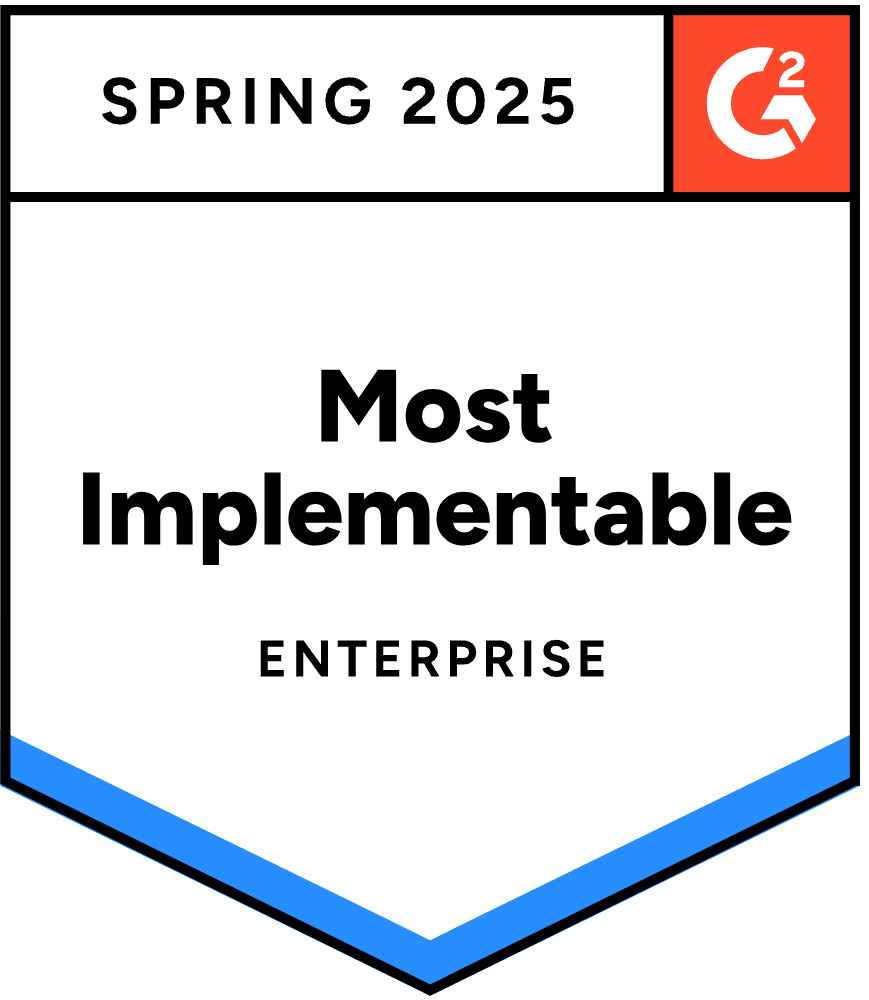What is Sales Operations: A Practical Guide
Anna Spooner | WorkRamp Contributor
View bioLearning Tips Straight to Your Inbox
What does it take to get your sales teams working together to hit their goals and drive revenue growth?
You need someone who can see the bigger picture and help guide and direct the team. This is where the sales operations team comes in. Using data to analyze performance, the sales ops team can make adjustments and process changes to help your sales team perform consistently.
Salesforce recently found that 85 percent of sales professionals agree that sales ops is becoming increasingly strategic. Teams are working to adapt the sales process to new realities and challenges, and your organization can’t afford to be left behind.
As sales operations roles evolve, understanding how to run a successful operations team is essential. As you embrace new responsibilities, your organization will become more profitable, and your sales teams will improve their win rates and quota attainment.
In this post:
What is sales operations?
Sales operations uses data for performance analysis and sales forecasting. The team can make necessary changes to improve sales performance from these results. When used strategically, sales operations teams can help the sales team to be more efficient and effective.
Most sales ops teams include a sales operations manager and sales operations analyst.
What are the roles of sales operations?
Like many things in business post-COVID, sales operations is evolving. Salesforce found that 75 percent of sales operations professionals say they have new responsibilities at work, and 64 percent expect their role to change permanently.
Sales operations includes everything it takes to make the sales process run smoothly. These responsibilities include documenting leads, highlighting which leads need follow-up, using sales data to measure and forecast performance, developing growth strategies, and improving customer success by building relationships with existing customers.
Sales operations tasks can also include:
- Choosing and maintaining sales tools for lead and sales tracking
- Executing sales processes
- Working behind the scenes to move the sale process forward
Some new responsibilities for operations teams include selecting and maintaining remote work tools, managing remote teams, and executing the transition as the sales process moves online.
How to run a successful sales operations team
How do you set your operations team up for success, so they can help your sales team hit their goals? Here are a few best practices to follow.
Clarify mission and roles
For a sales operations team to be successful, each team member needs to understand their role and know how their responsibilities fit into the organization’s overall sales strategy.
Starting with a formal mission statement and clear job descriptions can give your team the foundation it needs.
Unfortunately, that doesn’t happen in many organizations. LinkedIn found that 27 percent of sales operations professionals say they spend too much time “fighting fires,” and 36 percent struggle to balance operational and strategic responsibilities. A clear mission and defined roles can address these concerns.
Another benefit of clearly-defined roles and sales goals is that it’s easier to define the differences between departments with similar goals, like sales operations vs sales enablement.
Have regular sales operations planning meetings
Consider if meeting more often than a few times a year would help identify and prevent problems before they arise. LinkedIn’s research found that 90 percent of sales operations pros agree that more frequent planning would be beneficial.
A monthly meeting may be helpful, especially if things are in flux with transitioning to a remote team and focusing on social or remote selling.
Assign appropriate resources to the sales operations team
In LinkedIn’s survey, 51 percent of sales operations professionals felt they were well-resourced for their roles.
Investing in the right tools and attracting the right people is essential to create a strong, successful team.
Sales operations metrics and KPIs
Measuring performance can be challenging, but the good news is that several useful metrics will tell you if your sales operations team is on the right track.
Make sure you measure both leading and lagging indicators. If you only track the final result, like sales, it’s too late to make improvements.
By measuring leading indicators, you can detect problems and make adjustments before it impacts your bottom line.
Leading indicators of sales operations performance
If you notice these numbers flagging, it’s time to take action. But, on the other hand, if these leading indicators are on track, your team is likely on pace to hit goals.
Good leading indicators for operations include:
- Time spent selling: How much time a sales rep spends selling vs. other parts of the job, like meetings, administrative work, and training. This metric can help you understand where there might be inefficiencies in the sales process.
- Lead response time: The amount of time it takes a lead to respond positively to a sales message, pitch, or call to action. Lead response time tells you how effectively sales material is being deployed.
- Pipeline metrics: Knowing the pipeline value and efficiency can help you understand how sales are progressing and allow you to forecast results before the final numbers come in.
Lagging indicators that are important for sales operations include:
- Quota achievement rate: Total sales during a specified period. This metric is generally measured monthly, quarterly, or annually.
- Average win rate: The number of deals won vs. the total number of closed opportunities.
- Average deal size: The average amount a customer spends on your product or service.
- Average sales cycle length: How much time it takes from the first interaction with a prospect to a closed deal.
- Estimated revenue per sales rep: This is measured over a specified period (monthly, quarterly, or annually).
You can measure lagging indicators mid-quarter to gauge performance and allow you to make adjustments. Leading indicators can help you pinpoint where problems are happening.
Sales operations best practices
These best practices can help your sales operations team work more efficiently and effectively.
Collaboration
Too many organizations silo each department and expect them to execute their responsibilities alone. In today’s interconnected business environment, that’s ineffective and can also affect your bottom line.
Sales operations is responsible for a wide range of activities in the sales process, so the team needs to collaborate with everyone from sales managers to sales enablement to executive team members.
With cooperation, operations will be able to craft short- and long-term strategic plans to improve the efficiency of sales teams and drive increased revenue.
Proactive action
At its best, a sales operations department is watching trends in the sales process and taking steps to improve. When the team identifies tendencies before they become entrenched, they can save everyone time and money.
Unfortunately, many sales operations teams react to problems instead of being proactive. If your operations team is in this position, consider adding staff or more clearly defining roles to create space for proactivity.
Focus on efficiency
Sales enablement and sales operations share the role of streamlining the sales process and helping sales reps be as efficient as possible. However, streamlining sales tasks largely falls to operations.
The operations team should focus on making the sales process more efficient without interrupting the reps’ focus or flow.
Use data to understand customers’ reactions to sales
The sales operations team is responsible for the technology that collects information about how your customers respond to your sales process.
Surfacing this data and helping the sales enablement team refine messaging and materials will help teams collaborate and communicate consistently.
How to set up a sales operations department
Most organizations already have some sales operations, but it may not be a separate department with clear responsibilities and accountability.
Creating a sales operations department can help you get all the benefits of operations, including:
- Increased efficiency
- A clear strategy and focus
- Less wasted time and money
- A more effective sales process
The first step is to define your sales operations process as it is today; determine the following:
- Who is behind the scenes to ensure that the sales process works?
- Who chooses the sales technology?
- Who implements the projects created by the sales enablement team?
Next, determine what role you want your sales operations team to play. What would be ideal when it comes to tasks and responsibilities? What results are you looking to drive, both short- and long-term? Are any operations tasks falling through the cracks without a dedicated team?
Then, divide those responsibilities into separate roles. Clearly-defined roles help everyone perform effectively and avoid confusion, stress, and burnout. Then, build your team with the best talent based on these roles.
You’ll need to train your new team members and help them understand the overall role of sales operations and how their specific job fits into the bigger picture. Set goals for each position and equip team members with the necessary resources and training.
Improve sales operations with WorkRamp
One of the core responsibilities of your sales operations team is to help sales reps adapt their processes to be more efficient and effective. Equipping them with the right resources is essential to make that training engaging, easy to understand, and accessible.
WorkRamp is an All-in-One Learning Platform that your sales enablement and sales operations teams can use to train and onboard reps and help them improve quota attainment, win rates, and more.
Contact us for a free, personalized demo to learn more about how WorkRamp can help your sales operations team excel.
Complete the form for a custom demo.
Recent Posts
- Onboarding with an LMS: How to Set New Hires Up for Success July 16, 2025
- Why Secure LMS Platforms Are a Must for Regulated Industries July 10, 2025
- Top LMS Integrations That Power Smarter, Faster Learning July 2, 2025
- Introducing WorkRamp Analytics Studio: Unlocking Your Data Insights with AI June 30, 2025
- 11 AI LMS for AI-Powered Learning June 27, 2025
Anna Spooner
WorkRamp ContributorAnna Spooner is a digital strategist and marketer with over 11 years of experience. She writes content for various industries, including SaaS, medical and personal insurance, healthcare, education, marketing, and business. She enjoys the process of putting words around a company’s vision and is an expert at making complex ideas approachable and encouraging an audience to take action.
You might also like
3 essential sales enablement tools
Too many tools can be distracting for reps. Here are the enablement tools you really need to achieve sales goals.
Read More
Use these strategies to create and maintain an effective enablement program
There are many approaches to launching an enablement training program, but these steps have been effective for several companies across various industries.
Read More
6 Sales Onboarding Best Practices
Take your onboarding to the next level using these sales onboarding best practices from enablement leaders at WorkRamp, Divvy, Zoom, and Handshake.
Read More
Ready to Explore Online Learning Platforms?
Get in touch to learn how WorkRamp can help you achieve your training goals.
Request a Demo




